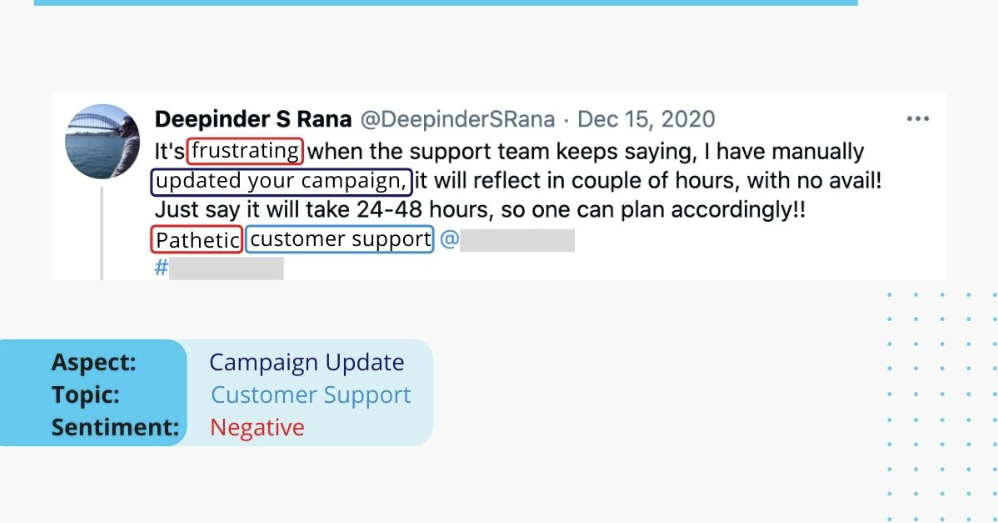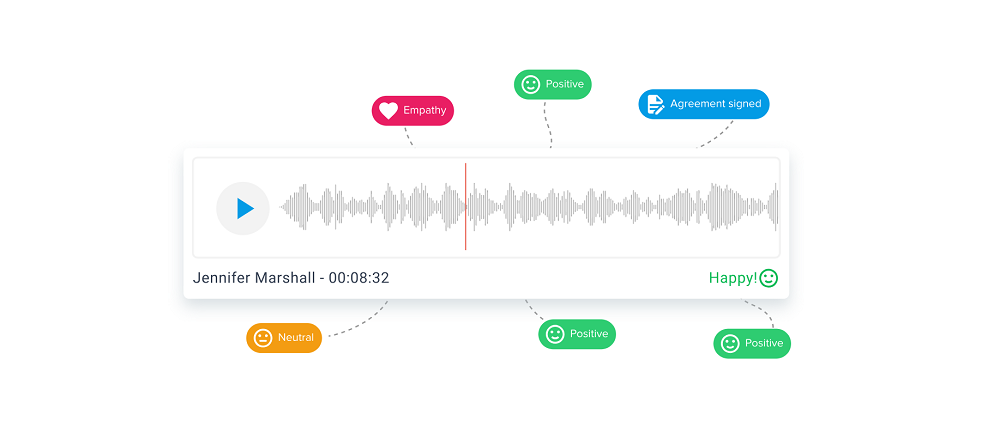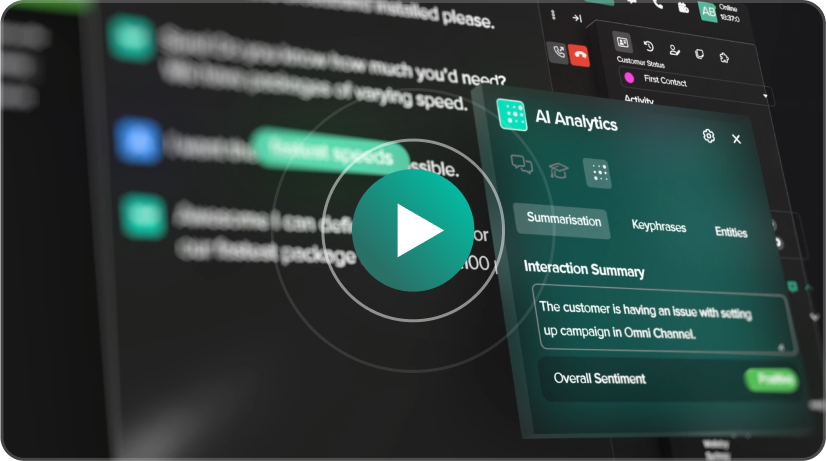In this era of digitalization and data-driven decision-making, every business is looking for ways to gain a competitive edge. One method that has gained significant popularity is sentiment analysis. But what exactly is sentiment analysis, and does your business need it?
In this insights blog, we will delve into the world of sentiment analysis and explore its potential benefits for your business.
What is sentiment analysis?
Sentiment analysis is the process of identifying the sentiment of a customer using Natural Language Processing (NLP), text analysis, and computational linguistics techniques to determine whether a piece of text or speech conveys a positive, negative, or neutral sentiment. This valuable insight can be extracted from sources such as calls and call transcripts, social media posts, customer reviews, and even employee feedback.

How do businesses use it?
Businesses employ sentiment analysis technology to gain valuable insights into customer perceptions of their products, services, or brand, seeking to enhance their competitive edge in the market. This analytical tool enables companies to better understand and improve the customer experience by tracking whether customer opinions are positive or negative.
Insights derived from sentiment analysis directly inform enhancements in customer service, bolster relationships, and aid in customer retention. The utilization of sentiment analysis already extends across various industries, including insurance, healthcare, retail, and banking, making it an indispensable tool for any business invested in customer-centric development.
Why is sentiment analysis important?
Sentiment analysis can present many benefits and opportunities for businesses and their operations. Here are three of the major advantages that sentiment analysis can offer:
- Understanding Customer Preferences
Sentiment analysis offers a window into the hearts and minds of customers, providing a deep understanding of their desires and enabling companies to tailor experiences to customer expectations. The knowledge garnered from this process not only fortifies the company’s strengths but also uncovers opportunities to better satisfy customer needs. - Improving Offerings
The actionable intelligence derived from sentiment analysis is crucial for the continuous refinement of products and services. These helpful insights empower businesses to make data-driven decisions that align with customer preferences, ensuring offerings are not only aligned with market demands but are also ahead of the competition. - Shaping Brand Image
Employing sentiment analysis strategically positions a company to proactively sculpt its reputation. By understanding and responding to customer sentiment appropriately, businesses can foster positive engagements, nurturing a brand image that resonates trust and excellence with their audience.
Now that we have covered the primary benefits of using sentiment analysis technology, what about its more practical applications?
Using Sentiment Analysis to improve Customer Experience
To gain a better understanding of how businesses can use sentiment analysis, here are a few business scenarios that show how different industries can use sentiment analysis to respond to consumer needs, refine products, and foster positive brand relationships.
Retail Customer Feedback Analysis: Retailers can utilize sentiment analysis to immediately dissect customer feedback across various platforms. This can lead to rapid identification of both positive and negative sentiments, allowing the company to address concerns promptly and utilize positive feedback in promotional strategies, thereby optimizing the shopping experience.

Consumer Electronics Product Refinement: In the tech industry, sentiment analysis can be employed to capture user responses to new product releases. Companies may speed up iterations of product improvement and increase user satisfaction by automatically sifting through product reviews and online forums to identify successful features to include in future designs and promptly identify and tackle unfavorable feedback.
Hospitality Service Enhancement: In the hospitality sector, sentiment analysis serves to track guest experiences in real-time. For instance, an analysis of online guest reviews might highlight issues like lengthy check-in processes, prompting the implementation of mobile check-in systems to streamline operations and enhance guest experiences from the moment they arrive.
Airlines Crisis Response: Airlines can greatly benefit from sentiment analysis as an early warning system for potential crises, such as baggage handling issues. When detected early, companies can proactively rectify situations and engage with customers to resolve concerns, thereby minimizing damage to their reputation and ensuring continued customer loyalty.
These use cases illustrate how sentiment analysis can serve as a pivotal tool across industries, enabling businesses to stay connected with their customer base and directly leverage consumer sentiment to inform decision-making and promote positive experiences.
Getting Started with Sentiment Analysis
Connex’s sentiment analysis tools are an excellent place to begin exploring the full potential of sentiment analysis in your customer processes. For more information, get in touch with our team at hellous@connex.ai or request a free demo of our CX platform here.
